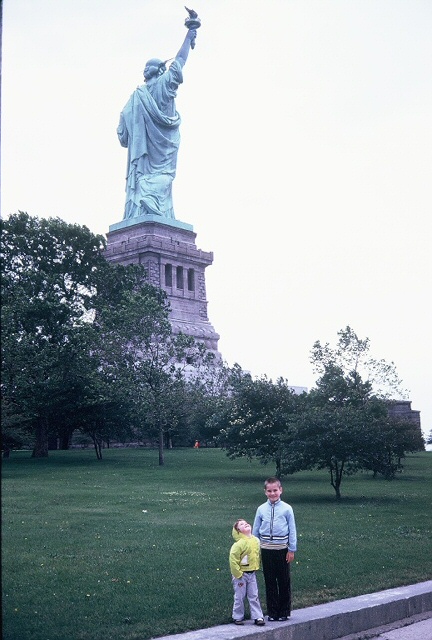The Great Placement*
About a month ago, I decided to do a post on a topic in which I’ve long been interested, but had spent little time on: the immigration of French-Canadians to the Midwest. The results are in two posts, April 21 and 28, both accessible here.
Here’s a general map for reference.
Coincidentally, on May 11, Michael commented on the April 21&28 posts, and on the same day the expiration of Title 42 stirred up a great deal of political dust at the border between the U.S. and Mexico. The dust storm continues as I write.
Michael’s May 11 comment is at April 21 and also follows below, following a few personal comments I had about yesterdays events, before I’d seen Michael’s. None of this is rocket science – What I write is simply an off the cuff opinion; Michael’s was more informed, albeit about another immigration event over 135 years ago involving Quebec and Minnesota. Perhaps the two of our opinions together will elicit other thoughts or maybe even comments about a current critical issue.
First, my first impressions regarding the refugees at the border and Title 42:
I thought first of the individuals who’d sacrificed all to be at the U.S./Mexico border these days. Many words are being shed about how they shouldn’t have come, etc., but by and large these are people who were yearning for a better life and at least the possibility of finding it inside our United States, which is undeniably by far the richest country on earth.
Essentially, Michaels ancestors over 135 years ago had the same yearning, and faced their own great difficulties and uncertainties.
A completely open border is impossible to justify. I don’t know anyone who advocates this. The European Union perhaps comes closest; even there, the openness is to people who live in EU countries. Having said that, the U.S. is a nation of immigrants. Virtually every American is not far removed from immigrant ancestors; an amalgam of many ancestries from many places.
One of my grandfathers was in his 20s before immigrating from Quebec. All of my great grandparents were rooted in Germany or Quebec; and except for Grandpa Bernard, all were in the United States long before Ellis Island. Three of my four grandparents were first generation Americans.
Generalization: look at an “American”, regardless of diversity in national origin, language, religion, etc., you find common ground with everyone. Except for Native Americans, we are all descended from immigrants. Even the natives, if you go back sufficient tens of thousands of years, also immigrated from somewhere else.
My final first impression is disgust at our own government for being stalemated for many years on the question of immigration reform. I think this goes back at least 15 years. There is plenty of fault to go around. There was once a close call at a bilateral reform, but that’s not enough.
Before passing the baton on to Michael, here are a few data sources which seem reputable for beginning a conversation.
An interesting tutorial on U.S. Immigration History (until about 1890, most immigration decisions were primarily state based, rather than Federal.)
About the Statue of Liberty (1886) and and Ellis Island (1890): here.
Here is Edna Lazarus iconic poem (1883) about “your tired, your poor”.
If you are interested in a religious perspective, this segment of a series by my Pastor on Immigration might be of interest to you.
A book which might be of interest: A Nation of Nations: A Great American Immigration Story by Tom Gjelten.

Joni and Tom at Statue of Liberty June, 1972
Now, Michael’s comment on the old days (which is passed along with his permission, and had nothing to do with Title 42 or the current immigration crisis.)
“My great great grandfather, Alphonse Bédard came from the Quebec City area (Charlesbourg) in 1885 and came into the United States at Port Huron, then across and up to Crookston and off at Argyle, Minnesota. That’s the romantic history part of anyone’s story, but as I always ponder when I talk about that, the reality is also that he and his wife Euphemie Proulx Bédard had seven of their children at that time ages four months to 12 years old! And I also just shake my head when I imagine what a awaited them there in the primitive village of Argyle. They were homesteading, and as I used to tell my history classes to make things real for them in talking about homesteaders coming across the United States…… I reminded them that these folks would arrive at a place where there were no Home Depot‘s and no McDonald’s! There was only land. Now my great great grandmother‘s family was already there in Argyle so I am assuming that they stayed with them while Alphonse worked on building some shelter for them on their 177 acres of land. I am putting together their story on paper in the coming weeks in detail, but suffice for now to say I find the personal side of their story, like so many others, is just amazing, when you consider that these two in total had 19 children. Four of them had already died young in Quebec. they brought seven with them out to Minnesota And they would have eight more children after arriving there. That’s a lot of hardship involved in all of that which made up life in those days .”
POSTNOTE; The Title of this post is a play on “The Great Replacement“, a far right white nationalist conspiracy theory.
“Placement” suggests adding to, rather than taking from.
